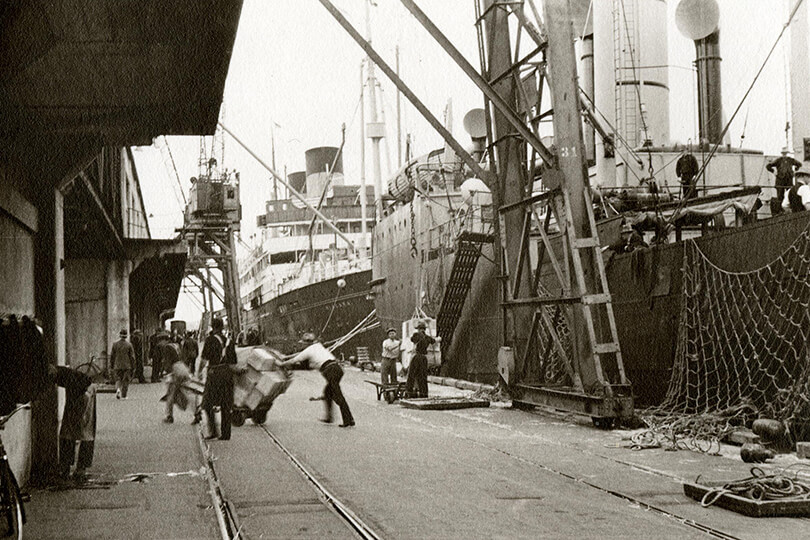Global History
Global History has become a vibrant field of research in recent years. It explores how societies in different parts of the world were shaped by global entanglements. From a European perspective, global history involves practises and experiences such as colonialism, imperialism, and liberal internationalism, but also the ways in which European societies were influenced reciprocally by an influx of people, ideas, raw materials, plants and animals from other continents. In short, global history argues that we cannot understand the birth of the modern world and its present dynamics without examining transregional interaction.
 A man loads or unloads cargo from a ship in Waitemata Harbour, New Zealand, 1930s.
A man loads or unloads cargo from a ship in Waitemata Harbour, New Zealand, 1930s. © The Trustees of the British Museum
Doing research in Global History
However, PhD students face several challenges when undertaking a research project with a global historical trajectory. For instance, they are confronted with the fact that global history overlaps with different fields of research such as imperial and transnational history, or postcolonial and area studies. Each of these approaches aims at overcoming methodological nationalism and Eurocentric notions of progress but involves a specific historiography and research paradigms that often contradict each other. What is more, global entanglements have a different significance depending on the historical period under examination and the positionality from which they are explored. Furthermore, global history addresses theories from the social sciences mostly in a critical fashion, for instance modernization and globalization theories, yet shares a thematic interest with them and thus addresses methodological and theoretical issues outspokenly. Last, but not least, students in global history are confronted with very specific practical challenges such as the accessibility of sources in overseas archives, differences of language, and the question of how many different parts of the world they must integrate into their research in order to make a global historical argument.
